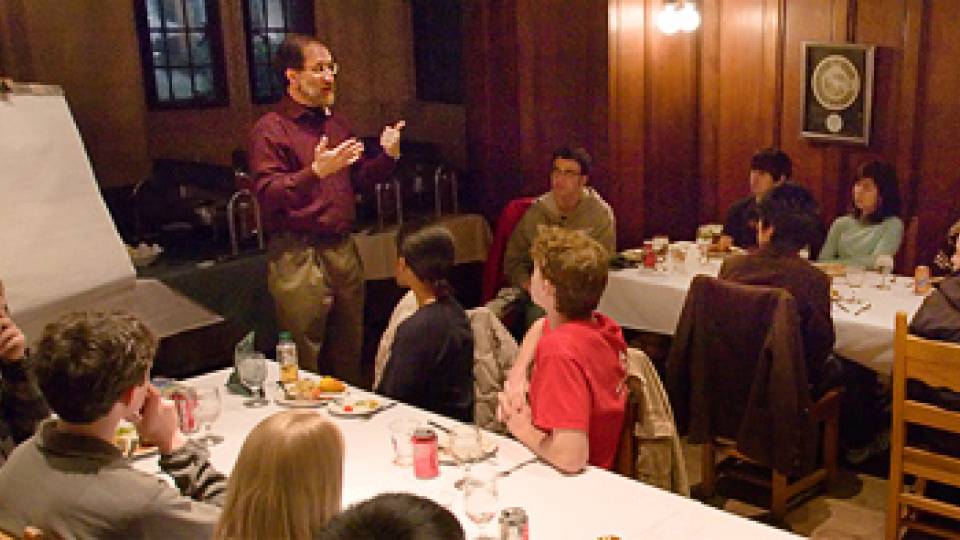Undergraduates at Princeton can choose from among 34 departments when deciding on a major. However, nearly half of today's juniors and seniors concentrate in just five departments.
An initiative to analyze this lopsided representation and to make students more aware of the range of options available to them is now under way.
"This summer, President Tilghman asked me to identify one thing we might do that would have the biggest impact in improving the quality of undergraduate education," said Dean of the College Nancy Malkiel. "I had an immediate response: Work to redistribute concentrators, so that fewer students are clustered in a handful of large departments."
Currently, 46 percent of juniors and seniors major in these departments (in order of popularity): politics, history, economics, English and the Woodrow Wilson School of Public and International Affairs. That leaves 54 percent of the students concentrating in the other 29 departments.
"These patterns are not unique to Princeton, and it is not hard to understand why they occur," Malkiel said. "The large departments offer engaging courses that many students want to take. Their programs of study address important matters of contemporary interest. And they can accommodate a wide range of undergraduates -- students with sophisticated, highly focused intellectual interests as well as students who are seeking the broadest, most flexible liberal arts concentration."
Read the full story in the Weekly Bulletin.
Contact: Eric Quinones (609) 258-3601
